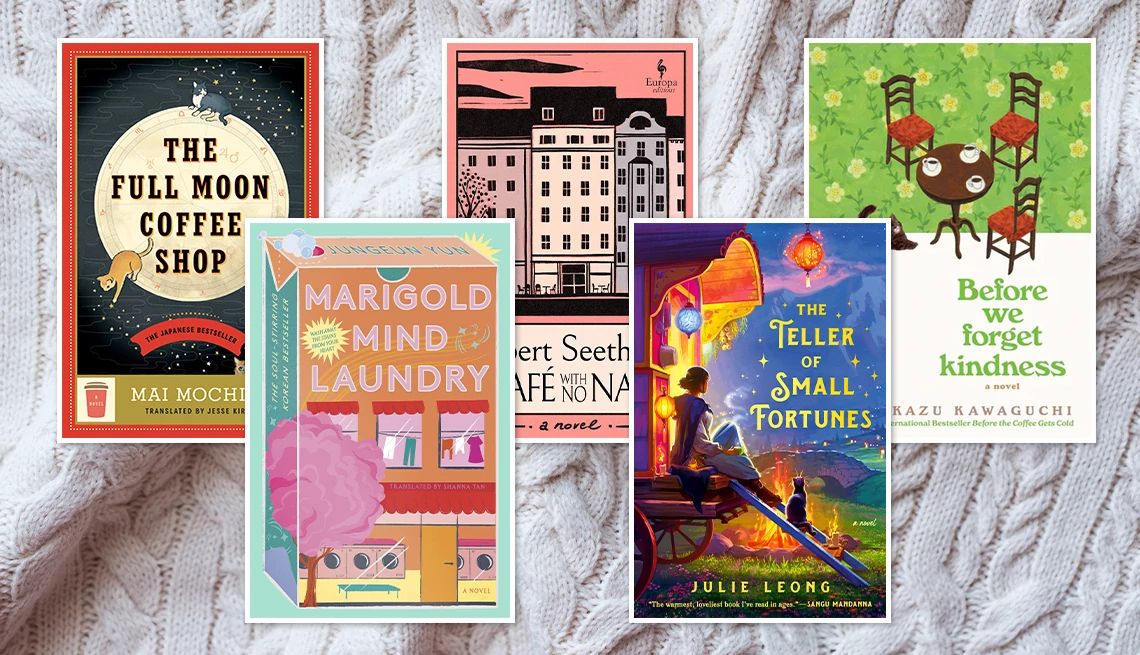AARP Hearing Center


In recent years, readers have been flocking to comforting genres like cozy mysteries and Hallmark-movie style romances — perhaps seeking a touch of hope and humor in what can feel like a trouble-riddled world.
Likely for similar reasons, an adjacent genre is making a splash on the international best-seller charts: healing, or feel-good, fiction.
A bit hard to define, the genre is not held together by particular plot points or narrative characteristics, but rather by the warm-and-fuzzy way these books leave you feeling.
The trend gained popularity in Japan and South Korea, with titles like Toshikazu Kawaguchi’s Before the Coffee Gets Cold series selling millions of copies and getting translated into dozens of languages. While these stories can be wide-ranging, a few commonalities have started to emerge: They’re very often set in communal spaces like coffee shops and teahouses, there’s often a bit of magical realism involved (time travel, witches), and kitties tend to be part of the plot (at least as adorable sidekicks to the main players).
Also, while characters — many of them older — may be flawed, they’re trying their very best. And there’s often cause for pain and sadness, but it gets resolved or tempered by kindness and connections.
It’s not hard to see why such books would be popular as a source of comfort in what can feel like a stressful time to be alive. “The reality out there is challenging,” says Austrian novelist Robert Seethaler, whose latest book, The Café with No Name, falls into this genre and has an English translation coming out in the U.S. in February (see more on this below). “It’s certainly sometimes pleasant to pull yourself out and read into other worlds," he adds.
So if the weight of the world is bearing down on you, grab a cup of tea and a snug blanket and add one of these new or newly translated feel-good stories to your must-read list.
The Full Moon Coffee Shop by Mai Mochizuki, translated by Jesse Kirkwood
This gentle fantasy is set in a mysterious café that magically pops up around Kyoto for people who need it. Adding even more whimsy, the coffee shop is run by talking cats who read visitors’ star charts and then suggest a sweet treat that will help in their journey to fulfillment. Among the diners looking for direction are an entrepreneur in a constant battle with technology, a hairdresser questioning her career path, and an actress dealing with the fallout after an affair with a coworker.




































































You Might Also Like
25 Great Ways to Show Your Love
Romantic gestures that say ‘I love you,’ ‘be mine’ and ‘XOXO’The 25 Best True-Crime Stories
Books, shows and podcasts so good it’s criminalShould You Start Therapy in Your 50s?
Some points to consider if you’re wondering whether it could help you